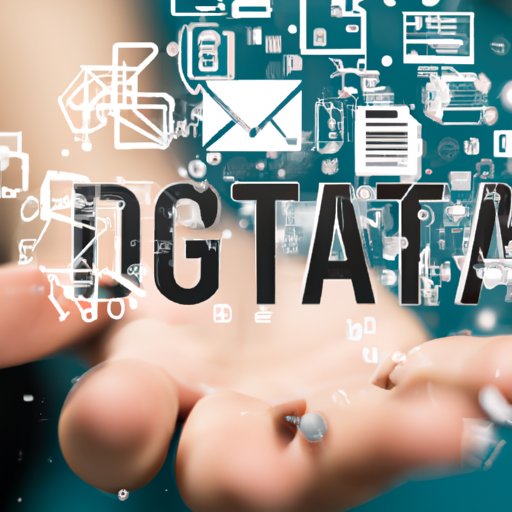Introduction
Technology has become an integral part of everyday life and its impact on business is undeniable. In the last 30 years, technology has revolutionized businesses around the world, allowing them to reach new heights of success. From automation to the emergence of the digital marketplace, technology has had a profound effect on the way businesses operate and interact with customers.

Impact on Traditional Business Models
The introduction of automation into the workplace has drastically changed the way businesses operate. Automation has allowed businesses to streamline processes, reduce costs and increase efficiency. According to a study by McKinsey & Company, “automation could potentially automate 45 percent of the activities people are paid to perform and that about 60 percent of all occupations could see 30 percent or more of their constituent activities automated.”
Automation has also created increased competition from global markets. The ability to quickly and easily access information from around the world has made it easier for businesses to compete in global markets. This increased competition has put pressure on companies to become more efficient and innovative in order to stay ahead of the curve.
The emergence of new business models has also been enabled by technology. Companies such as Uber and Airbnb have taken advantage of technology to create entirely new ways of doing business. These companies have disrupted traditional business models and created new opportunities for entrepreneurs.
Effects of Automation on Labor Markets
The introduction of automation into the workplace has had a significant effect on labor markets. Automation has led to job losses in some industries as machines can now do the work that used to be done by humans. According to a report by the Organization for Economic Cooperation and Development (OECD), “up to 14 percent of jobs in OECD countries are at high risk of being automated in the next two decades.”
The introduction of automation has also had an effect on wages and working conditions. As machines can do the same job as humans, employers are able to pay lower wages for the same work. This has had a detrimental effect on workers, particularly those in low-skill jobs.

New Opportunities for Customer Engagement
Technology has also opened up new opportunities for customer engagement. Social media and digital platforms have allowed businesses to connect with customers in ways that were not possible before. Companies can now use these platforms to build relationships with customers, promote their products and services, and gain valuable insights into customer behavior.
Technology has also enabled businesses to personalize services and products for customers. With the help of big data and analytics, businesses can collect and analyze customer data to better understand their needs and preferences. This allows them to tailor their offerings to meet the individual needs of each customer.
Use of Big Data to Inform Decision-Making
Big data has also become an essential tool for businesses looking to make informed decisions. By collecting and analyzing vast amounts of data, businesses can gain insights into customer behavior and market trends. This allows them to make more informed decisions and better understand their customers.
Predictive analytics is another tool that has been enabled by technology. Predictive analytics uses algorithms to identify patterns in data and make predictions about future outcomes. This can help businesses anticipate customer needs and plan for the future.

Emergence of the Digital Marketplace
The emergence of the digital marketplace has had a huge impact on businesses. Online shopping has grown rapidly in the last 30 years, with e-commerce sales reaching $3.5 trillion in 2018. This rapid growth has put pressure on brick-and-mortar retailers to adapt to the digital age or risk being left behind.
Conclusion
In the last 30 years, technology has radically changed the way businesses operate and interact with customers. Automation has allowed businesses to streamline processes and reduce costs, while the emergence of the digital marketplace has opened up new opportunities for businesses to reach customers. Big data has also become an essential tool for businesses to make informed decisions, and predictive analytics can help them anticipate customer needs. Technology has revolutionized the business world, and it will continue to do so in the years to come.
(Note: Is this article not meeting your expectations? Do you have knowledge or insights to share? Unlock new opportunities and expand your reach by joining our authors team. Click Registration to join us and share your expertise with our readers.)
